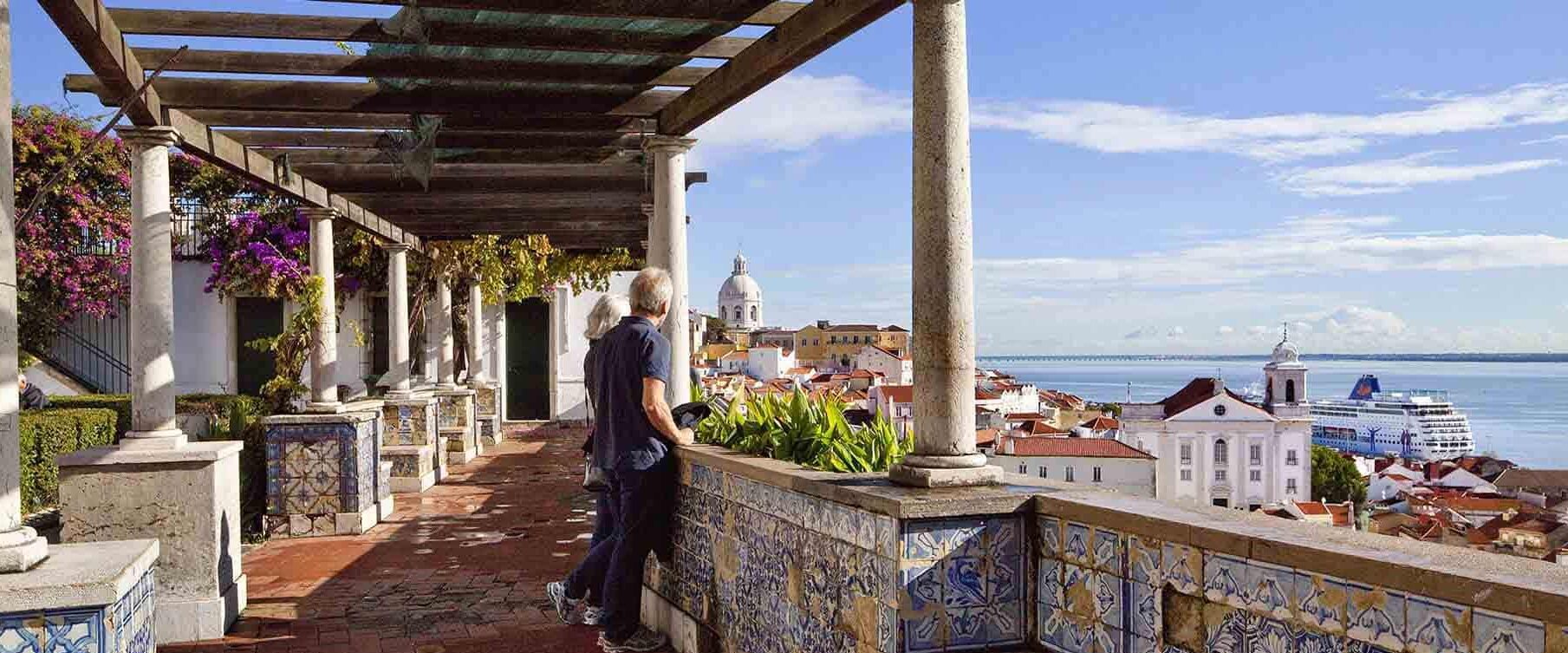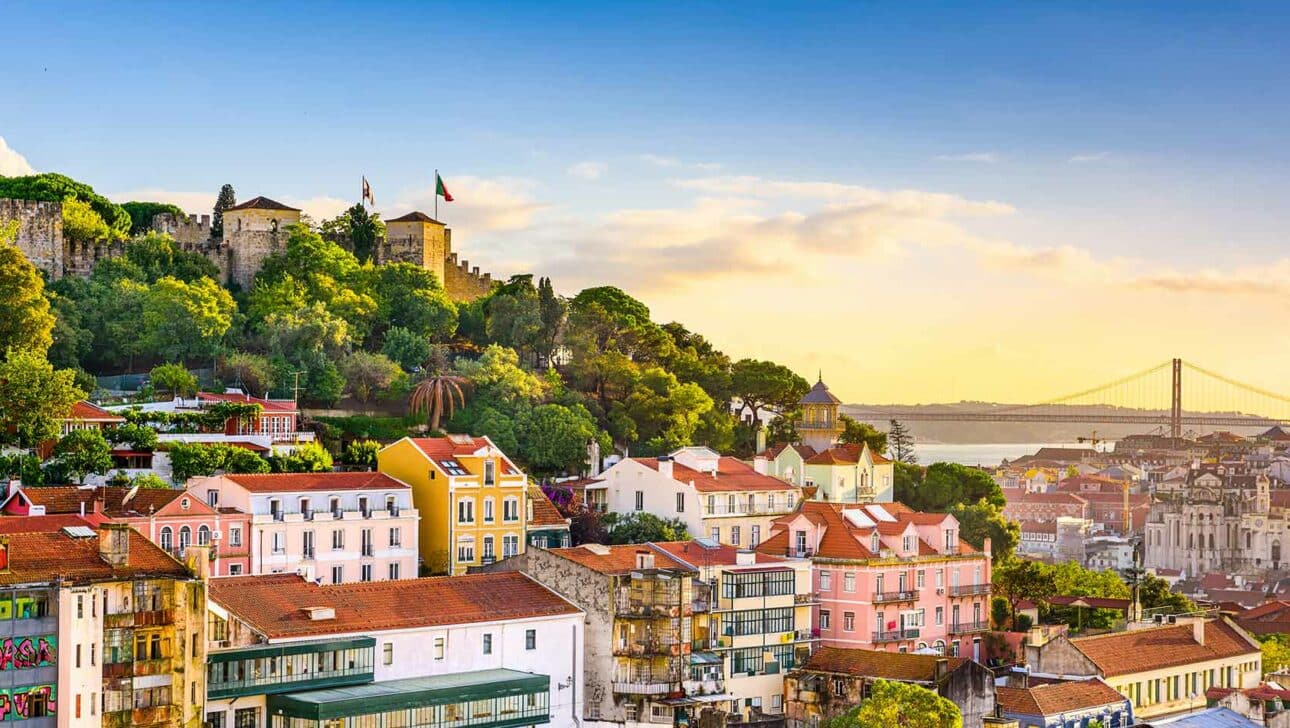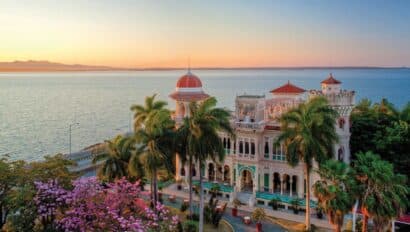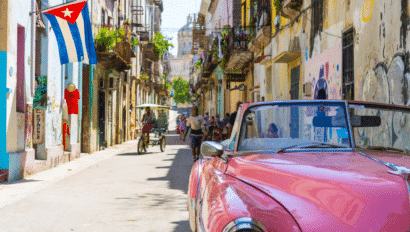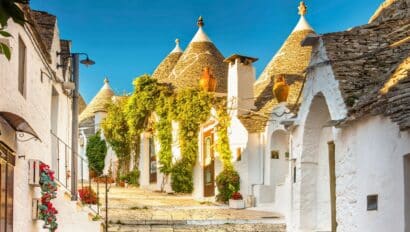By age 16, Classic Journeys guide Carla had discerned her life’s calling: to help others discover the beauty and diversity of the country she adores—her native Portugal. Born and raised in the Lisbon area, Carla was smitten with the rich depth of her nation’s history, the cultural allure of Lisbon and the idyllic charm of the Portuguese countryside. Most of all, she knew Portugal is full of surprises that she was eager to share.
“It is a small country, but there is so much more here than people expect,” Carla says. “I like guests to take home a taste of the variety we have and of the charm of the Portuguese culture.”
One of those “aha” moments for Classic Journeys guests inevitably arrives on the second day of their trip. After a day of exploring 500-year-old landmarks in Lisbon, guests head to the countryside to ascend to Castelo dos Mouros, or the Castle of the Moors. Built in the ninth century by North African Moors and restored most recently in the 19th century by King Ferdinand I, the castle retains the aura of an ancient ruin. A short but energetic climb to the gray-stone towers and sinuous battlements rewards guests with a glimpse into the intriguing complexity of Portugal’s past and present.
The first striking surprise is the view. “Being atop the castle is like seeing the world from a hot air balloon,” Carla says. On one side is the crashing surf of the Atlantic, on the other, the lush Sintra Valley. As Carla attests, the contrast is a mere appetizer to the visual feast that is Portugal’s landscape.
As the guests’ attention shifts from the natural wonder to that held in the aged walls, a picture begins to form of the diversity of the nation’s history, which in turn has shaped its modern personality. Over the centuries, Muslims, Jews and Christians all occupied the castle at various times, and many kings and invaders staked their claim here. “Being by the sea, Portugal was for a long time a land of navigators and a destination for people from other cultures,” Carla says. “That has made us broad-minded and welcoming to everything that is exotic.”
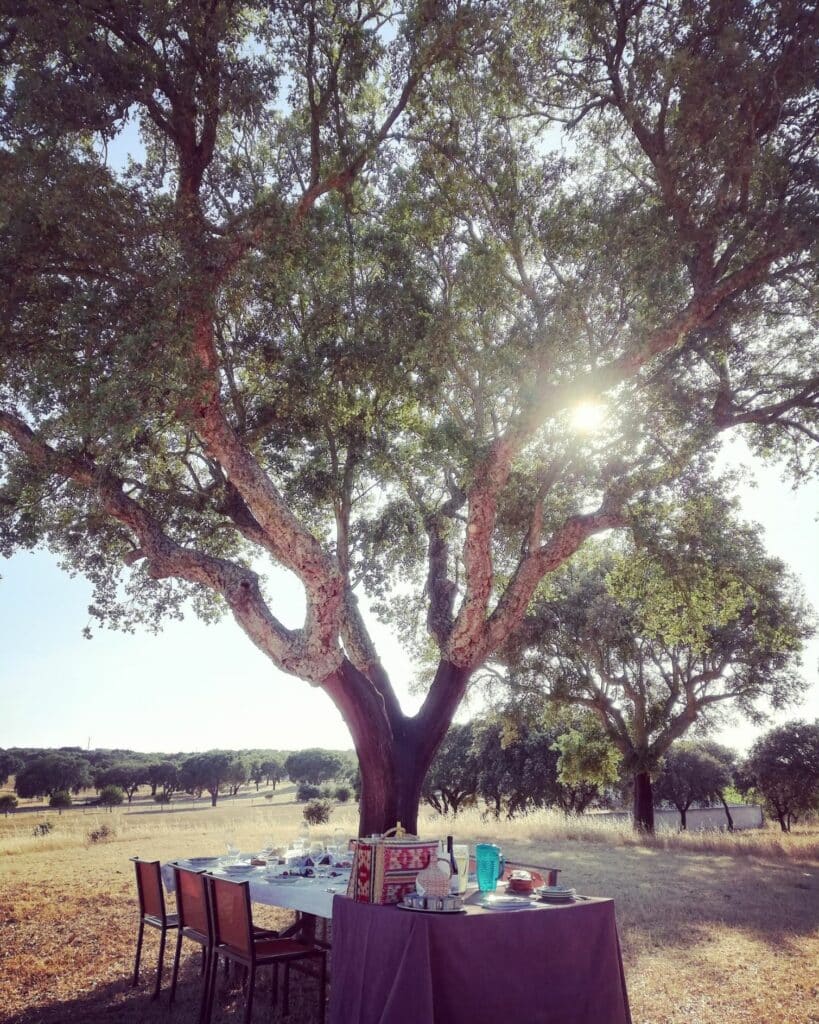
That flavor and variety extends to Portugal’s cuisine, which Carla asserts is always a highlight for guests. Even the national dish—bacalhau, or salted cod—points to this embrace of “the other.” While Portugal’s coastal geography make fish and seafood a recurring culinary theme, codfish cannot be caught off the nation’s coast; it must be imported from other countries to satisfy the affinity for it that has persisted since Portuguese sailors first reached Newfoundland in the 1500s.
In the small berg of Mealhada, we dine at local Restaurant Típico owned by our longtime friend Senhora Idalina who is always there with her daughter. Here, guests are invited to try leitão assado, roast suckling pig, the signature dish of the region. After a plate of local olives and cheese, guests savor leitão’s crisp skin that gives way to smoky, succulent meat. The experience is so satisfying that a small salad and perhaps a few freshly homemade potato chips are all that’s needed to round out the unique dining experience. “It’s rare that all guests will have the same opinion, but they almost always agree that this meal is the best of the whole trip,” Carla says.
Meals reliably feature another Portuguese surprise: exquisite homegrown wines. “We have more than 200 different grape varieties here, which is a lot for a small country,” Carla says. “The price is not very expensive, and the quality is very good—many of our wines have received worldwide recognition and awards.”
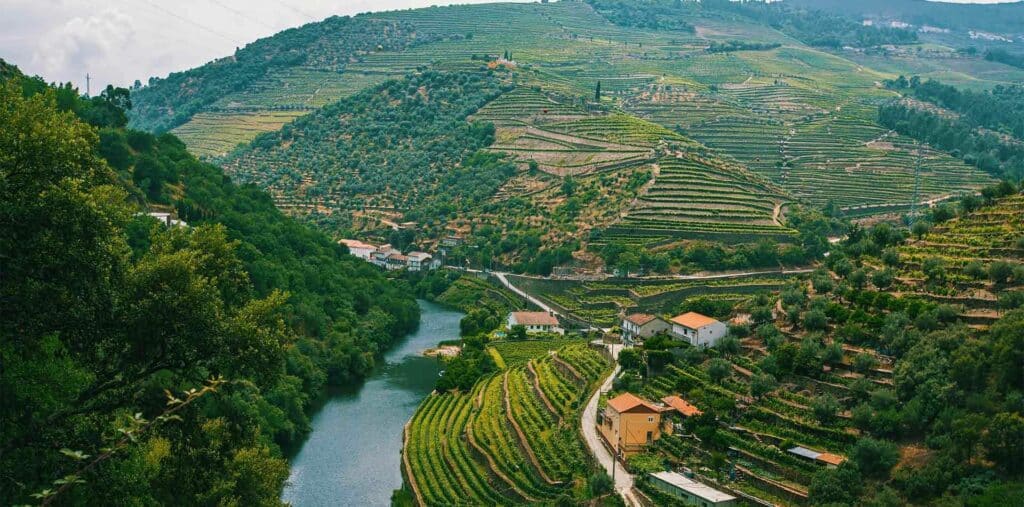
Classic Journeys guests relish visits to wineries in the Sintra and Douro valleys, where they deepen their knowledge of Portuguese wines through tastings and of the Portuguese people through interactions with vineyard workers. “One of the guests’ favorite experiences is hearing the life story of the Sintra winery owner, who is over 100 years old,” Carla says. “He survived both World Wars and almost died from cancer in his 60s. It’s fascinating to hear about all that he’s done in his lifetime and learn the history of the winery.”
The opportunities for engaging with locals—whether with the shop owners in historic Cascais or exchanging stories with a Portuguese family sitting at the table next to you at dinner—set Classic Journeys excursions apart from other tours. The small groups make such interactions possible, Carla explains. “I can be spontaneous, which I love,” she says. “And I can give the guests confidence to approach the Portuguese people.” In fact, it was the intimate nature of the smaller groups that attracted Carla to Classic Journeys in the first place. “I used to guide big tours,” she says. “But I’d rather lead small groups because I can treat people individually and not as sheep. We get to know each other better, and it becomes a mutual learning experience.”
For Carla, that means embracing the best of other lands, as the Portuguese people have been doing for centuries. Guests, meanwhile, absorb Carla’s long-held passion for her delightful country and leave with a fresh understanding of the colorful
mosaic that is Portuguese culture.
